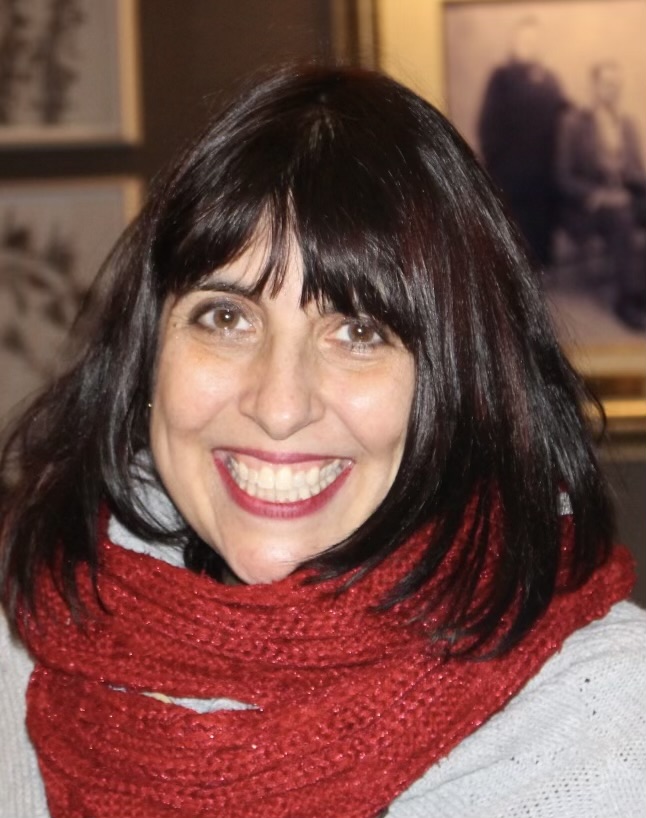By Carrie Anne Tocci
A few years ago, I subbed a fifth-grade class. Lemony Snicket, Harry Potter, and Matilde book clubs populated the classroom. These titles featured orphans. I’ve never considered that I was one. My story begins with my arrival to my first home, at two weeks old. But that’s before the shushing around adoption started.
The first shushing followed the Avon lady’s visit when I was nearly eight years old. Mountain-like, at the end of our handmade wooden table complete with tree knots, she sat in Dad’s usual seat, and I stood near my mom’s lap at the other end. Instead of packing up to leave after we ordered Sweet Honesty for me or Hawaiian Ginger for my nanny, she said something like, “You don’t look adopted.” Speechless, my mom froze. For the first time, not yet ten years old, I confront a reality: people outside of our immediate family know that I am adopted. A label stuck on with permanent glue though I suddenly feel impermanent. I came from elsewhere. But no one knows where. A closed adoption mystery to carry into adulthood.
Tonight, members of my Adoptee Voices writing group share that there are whole books about adoptee murderers. Jeffrey Dahmer’s name pops into my head, and I recall hearing he was adopted. A quick Internet search does not confirm this, though I remember the rumor. Even rumors around adopted people, infamous ones, are hard to place or confirm.
After the Avon lady’s visit, my mom wanted to protect me. That’s what I think today. This is my explanation for why she told me, “Don’t tell anyone you’re adopted,” shortly afterward. I recall hearing this request after I followed her to the basement, where she pulled warm clothes from the dryer. When I think back to this incident and its antecedent, the Avon Lady’s comment, my memories conjure my surprise. Italian-American like us, the Avon Lady was a respected women in our church who baked ziti and lasagna for parish events. Maybe she thought this cultural connection gave her the right to interject her observation. Back then, I didn’t know my true ethnicity. I considered myself Italian-American, not yet thinking of this culture as borrowed. My dark shiny hair, brown eyes, and olive-toned skin matched with my parents and their sons, my brothers, who weren’t adopted. Culturally, this is who I am.
As I grew, adoption popped up and remained subterranean. Obscured just enough to give me a scare. Maybe this is why when I see an unexpected shadow or movement of light in my apartment or on the street, I jump expecting a mouse or a rat. Then and now, I never know when adoption or an adoption-related event might pop out. I get scared easily. Sometimes, there’s humor in this. My screams sound pre-recorded, reminding me of an old commercial: is it live or is it Memorex? Or both? Sometimes individual screams stay inside–stuffed. Expressed or muffled, the track played is separation anxiety or fright that comes with the cool wash of isolation and abandon—a tightening—imagine an infant’s clenched fists, a face scrunched not yet warmed by tears. But there are tears of laughter, sometimes, too.
About 10 years ago, a friend and I took our best friend’s kids to a restaurant when she was away. Her eight-year daughter tapped my shoulder to playfully startle me when she returned from the bathroom. Poor girl. My piercing scream brought the chef out of the kitchen. Customers froze. She and her brother, both horrified and entertained. We still cry laughing remembering this scare.
I can now say that it frightened me when my mom told me not to tell people that I was adopted. She added, “Your Other Mother may want you back.” My mom doesn’t remember saying this; could this have been a tape inside my head? Was this her fear or my fantasy? But I have a clear recollection. No matter what was said, this is what I heard.
Middle-aged now, post searching and finding blood relatives and reuniting with many, when I try to get in touch with Mom’s worry, I feel her deep love for me and mine for her, because as she feared losing me, I feared losing her, though she encouraged me to remember my Other Mother and she reminded me to pray for her. My unnamed and missing Other Mother loomed both luminous and scary. She might take me away from my parents, my brothers, our calico cat, and our red house in the middle of the street in a quaint Western New York State canal side town.
She never came. I’m acquainted with her now via email only; she refuses to speak with me or know me. I’ve stopped waiting, but not hoping. We lurk in each other’s lives. This is something other adoptees understand.
Back when I was in the fifth grade, I made my first adopted friend.
For a time, our friendship outshone my relationship with Sandy and Jane, my best friends who lived across the street from me. They knew I was adopted but we didn’t talk about it. Strangers who saw us together often asked if we were sisters. Sandy was in my fifth-grade class too, and I felt guilty when my attention turned to Lynne.
Lynne understood why the PD Eastman story, “Are You My Mother?” poses a frightening question. She was right by my side when the boy who liked to call me Dolly Parton locked eyes with me and said it yet again. Fed up, I said, “Why don’t ya’ look in the mirror?” Deepening our lock, I leaned in and said, “Afraid ya’d get scared?” His jaw dropped. Lynne stepped in front of me; I sat down. “You told him. Touché,” Lynne praised. From that day forward, that’s what Lynne called me: Touché. I liked this nickname. It didn’t sound too far off from my Italian-American last name, plus it had a little sass.
I didn’t know Lynne’s cultural background. Her skin tone was warmer than mine, somewhere between black and white, but culturally, to me, she was 100% adoptee. We accepted each other fully. But Lynne’s parents didn’t accept her. Like a character from the stories those fifth graders read a few years back, she was sent back to the orphanage. Her parents thought she was too difficult to control. To me, she was flawless. In a poof she disappeared. I never got a chance to say goodbye.
She was sent back to Hillside Children’s Center, the place where my original adoption records are kept inside a folder, sealed in darkness. I hate this place but loved Lynne.
I have been thinking about her almost every day this last week with all the talk and threats of sending migrants back. Being sent back but not to our origins, just sent back, out there–to the abyss, feels like a punishment delivered by a mythical god, lampooning the innocent. Lynne’s story is real, and she remains heroic in my mind. I wonder how she has journeyed through life. Is she still alive?
As an adult, I’ve journeyed the joy and sorrow of adoption, the gains and losses of searching and reuniting, the hurt and healing, and the empowering light of truth. Maybe because I had an anchor, a place to push off from, I dared to search. But I’ll never know what happened to Lynne. I hope she’s secured. Loved. No longer moving around.

Carrie Anne Tocci lives and teaches in New York City. Her poetry and prose have appeared in many journals, most recently The Bangalore Review, Adoptee Voices, The Ocean State Review, and Voices in Italian Americana.

